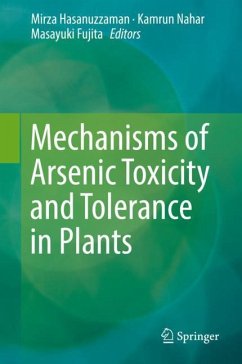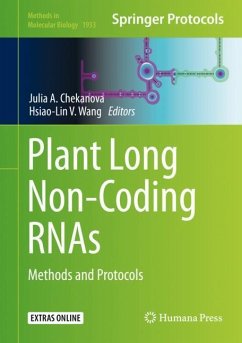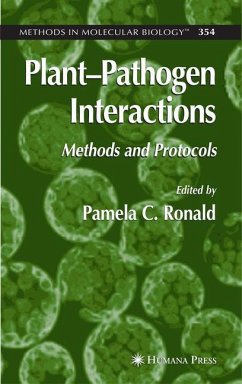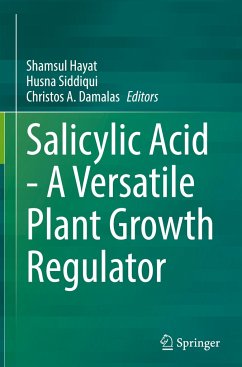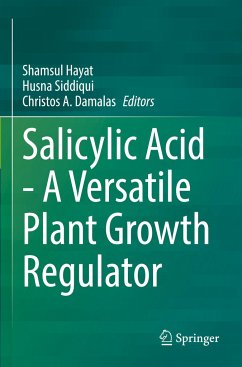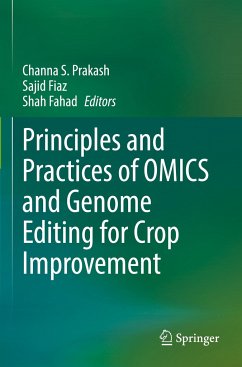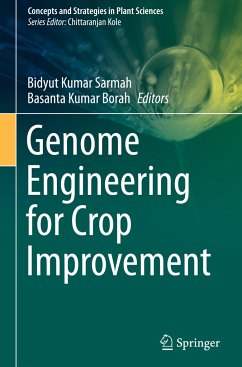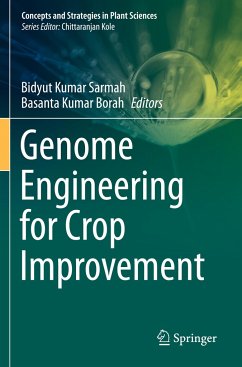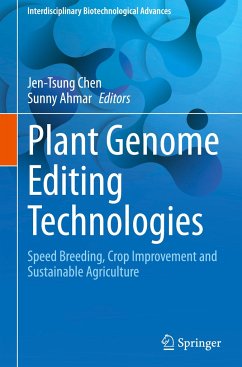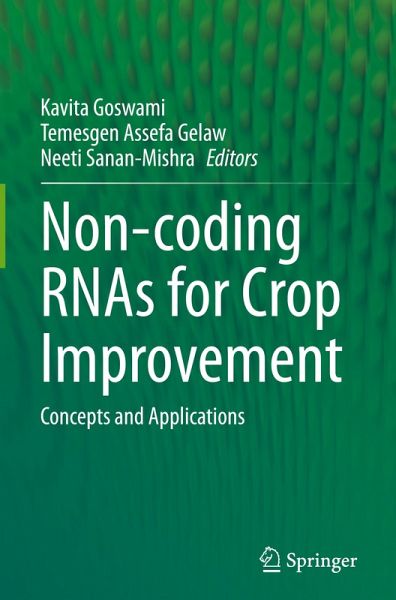
Non-coding RNAs for Crop Improvement
Concepts and Applications
Herausgegeben: Goswami, Kavita; Gelaw, Temesgen Assefa; Sanan-Mishra, Neeti

PAYBACK Punkte
83 °P sammeln!
This edited book covers all aspects of non-coding RNAs analysis. Non-coding RNAs are critical genetic regulators that have evolved as game-changers in modifying plant responses to stress conditions. The book explores potential relationships between different classes of non-coding RNAs and response of plants to biotic and abiotic stresses. The chapters are organized into three sections. Section 1 provides a basic understanding of the various aspects and roles of RNA silencing. Section 2 includes an overview of the molecular techniques and computational methodologies used for identification and ...
This edited book covers all aspects of non-coding RNAs analysis. Non-coding RNAs are critical genetic regulators that have evolved as game-changers in modifying plant responses to stress conditions. The book explores potential relationships between different classes of non-coding RNAs and response of plants to biotic and abiotic stresses. The chapters are organized into three sections. Section 1 provides a basic understanding of the various aspects and roles of RNA silencing. Section 2 includes an overview of the molecular techniques and computational methodologies used for identification and analysis of small RNAs. Discovery timelines are also provided to highlight the significance of next-generation sequencing over time. Section 3 of the book covers the applications of RNAi techniques to improve crops and develop stress-tolerant varieties.
This book compiles all available data and computational approaches to analyze non-coding RNAs. It describes the general characteristics, categorization, functional analysis, and advancements in RNAi and its role in developing stress-resilient plants. This book is helpful for students and researchers to understand the role of non-coding RNAs, which opens new insights into next-generation sequencing. It serves as excellent reading material for undergraduate and graduate students studying molecular biology, bioinformatics, agriculture, and environmental sciences.
This book compiles all available data and computational approaches to analyze non-coding RNAs. It describes the general characteristics, categorization, functional analysis, and advancements in RNAi and its role in developing stress-resilient plants. This book is helpful for students and researchers to understand the role of non-coding RNAs, which opens new insights into next-generation sequencing. It serves as excellent reading material for undergraduate and graduate students studying molecular biology, bioinformatics, agriculture, and environmental sciences.



